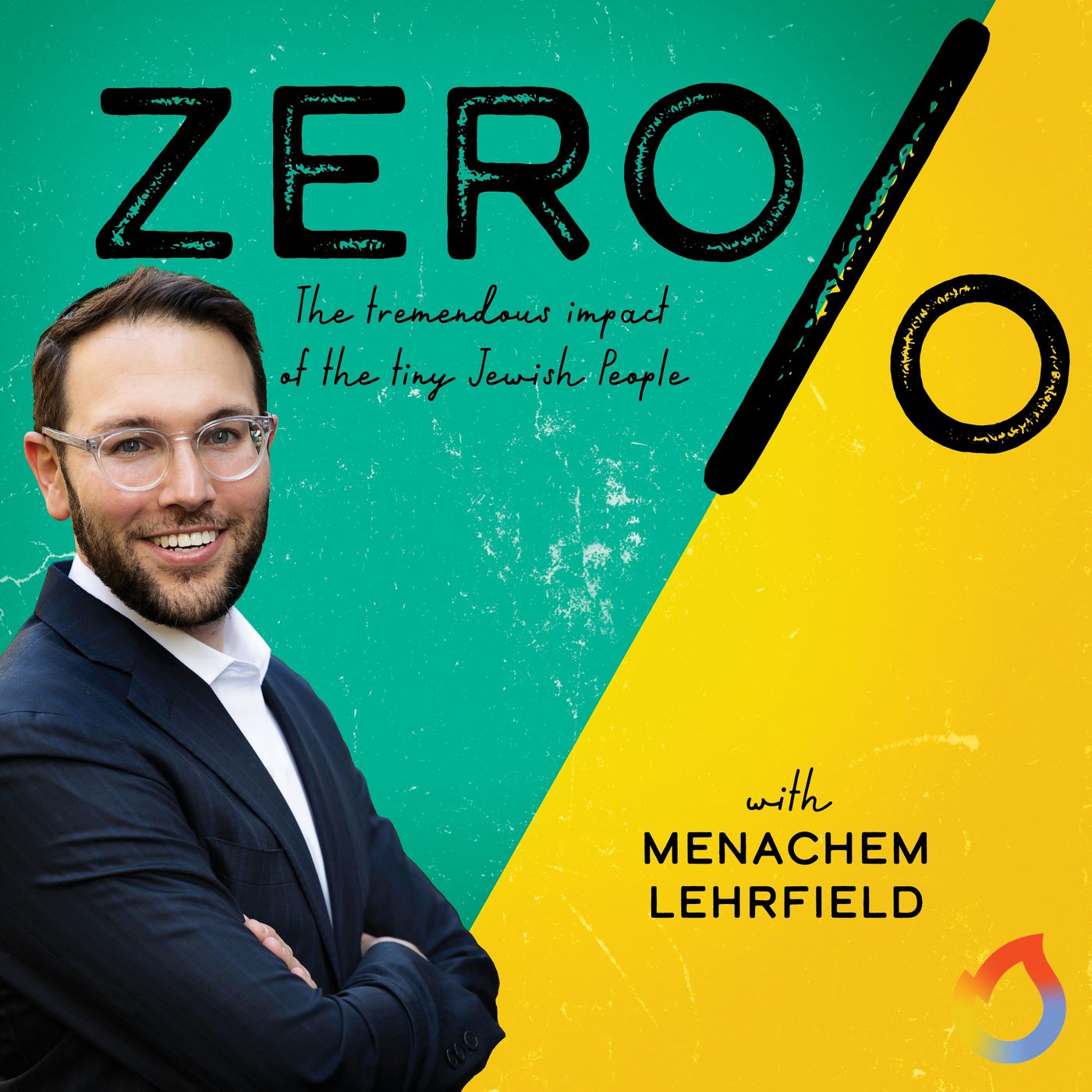11- Move The Needle
Description
Using our acronym Be Free, we talk about the most important concept- Effort.
Episode Transcript:
Hey everybody, I'm Menachem Lehrfield and you're listening to 0%, where we explore world changing ideas introduced by Judaism. If you're enjoying this podcast, I hope you've already subscribed. Why not take it one step further and share it with a friend? Or give us a five star review so that others can find this podcast as well. Now let's get to today's episode. We've been moving through the acronym BFREE as a way of approaching Carol Dweck's mindset research through a Jewish lens. Today we're up to the meat and potatoes of the entire series. I think this is perhaps the most important of all of the different concepts that she talks about, and that is the idea that effort is a key to mastery and not a sign of weakness. There is perhaps no idea more foundational to Judaism.
A couple years ago, I was giving a class to a group of young professionals, and we were talking about the importance of every human life and the value of human life. And I posed a theoretical question which I was not expecting to get an actual response, and you'll see why in a second. I posed the following question, I said, "Imagine you're walking along the beach and you see in the distance a person who's drowning, and the opposite direction you see your dog that you've had since he was a tiny little puppy is drowning as well, and you can only save one. So on one hand you have a complete stranger who you don't know, you've never met before, you know nothing about. On the other hand, you have your dog for the past 10 years who you've had since childhood, who you love and adore. Who do you save? Assuming, again, you could only save one."
And I thought it was a given that everybody would say the moral correct thing to do is to save the human being, but there was one guy, let's call him John, because his name is John, and John raises his hand and says, "I don't know. Maybe I would save the dog. After all, it's my dog. And I don't know anything about the other person." And much to my surprise we actually discussed this back and forth. Now if you would save the dog over the stranger, I'm not making any judgments about you or your character. Well, actually, I guess I probably am. I think the moral thing to do is to save the human being, but regardless of whether you would save the dog or the person, most people would agree that if faced between killing someone else or letting yourself be killed, I'm willing to go out on a limb to assume that all of you listening right now would agree that it's wrong to kill the other person, even though your life is being threatened, and it's better to die than to kill somebody else.
The Talmud actually brings down this very case and rules the way we would expect it to rule. It's brought down in the track date in Sanhedrin in 74a. The Talmud says, "A certain person came before Rabba and told him the governor of my village said to me, "Kill such and such a person or else I will kill you."" That seems exactly like our case. If you don't kill Steve, we're going to kill you. And the Talmud rules as we would expect it to, that let yourself be killed and do not kill him. What's puzzling though, is the reason the Talmud gives. The Talmud doesn't say, "Let yourself be killed and don't kill because it's wrong to murder." What the Talmud says is, "Let yourself be killed and do not kill because who says that your blood is redder. Maybe that man's blood is redder."
Now we have to zoom out for a second and understand the case the Talmud is talking about. The Talmud does not talk about the nature of each one of these parties involved, and so this ruling would apply regardless of who these two people are. So imagine for a second, on one hand, I have Mother Teresa, a wonderful woman who spent her entire life doing kindness and good. And from the moment she woke up in the morning...
More Episodes
Published 04/21/24
Published 04/19/24
Published 04/19/24


